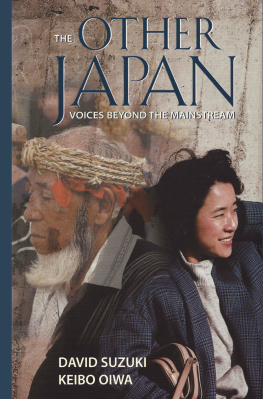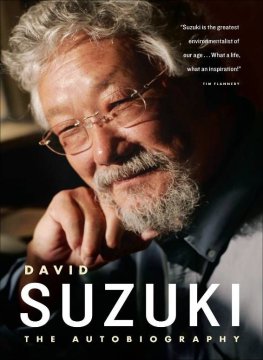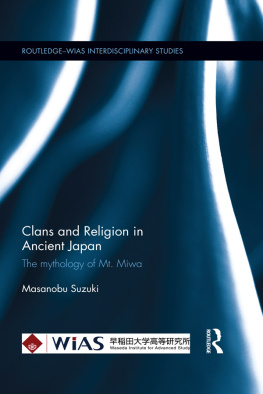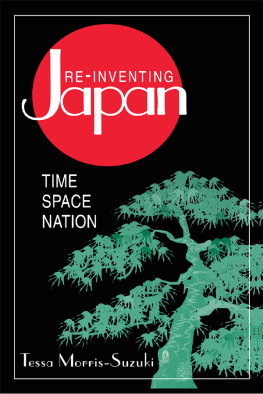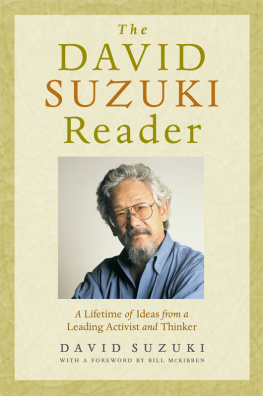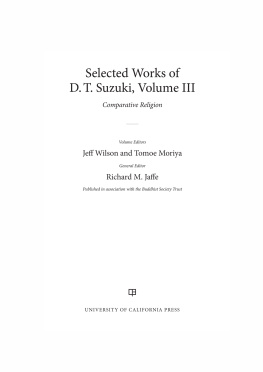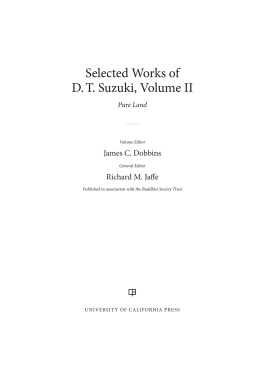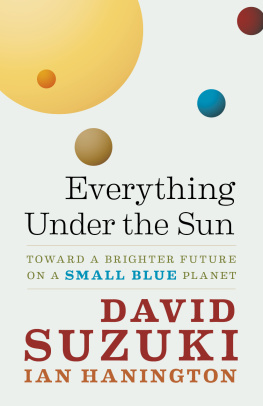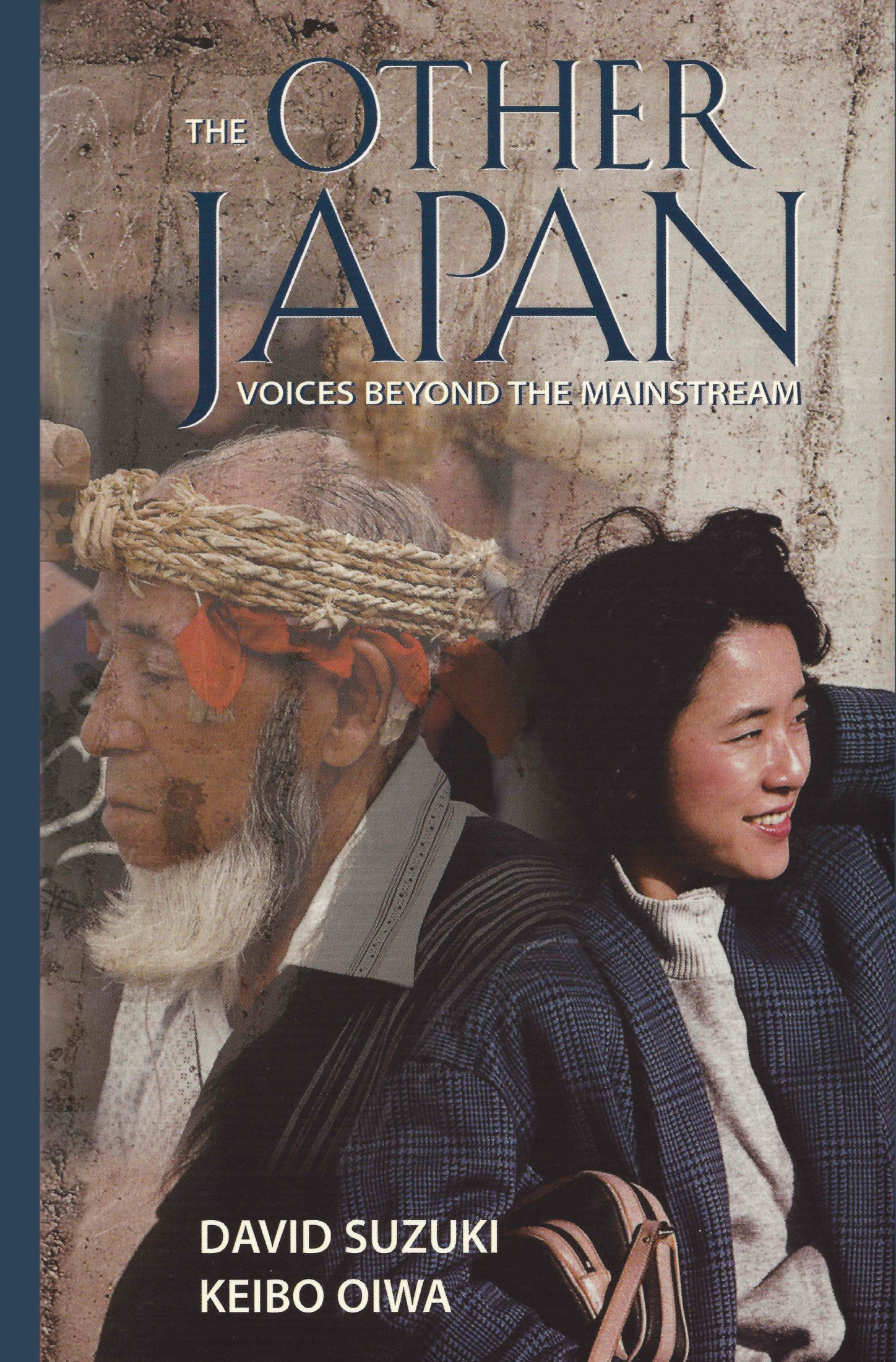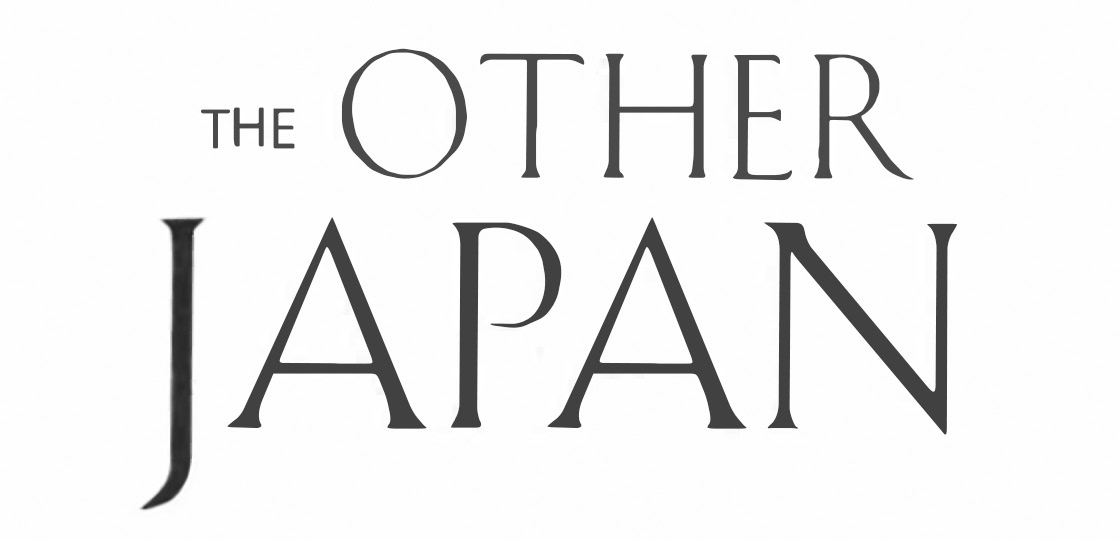Voices Beyond the Mainstream
David Suzuki
Keibo Oiwa
Copyright 1999 Fulcrum Publishing
Original copyright 1996 David Suzuki and Keibo Oiwa
All rights reserved. No part of this book may be reproduced, stored in a retrieval system, or transmitted in any form by any means, electronic, mechanical photocopying, recording or otherwise, without written permission from the publisher.
Library of Congress Cataloging-in-Publication Data
Suzuki, David T., 1936
The other Japan : voices beyond the mainstream / David Suzuki, Keibo Oiwa.
p. cm.
Originally published: The Japan we never knew: a journey of discovery.
Toronto, Canada: Stoddart, 1996.
Includes bibliographical references and index.
ISBN 1-55591-417-9
1. Japan-Description and travel. I. Oiwa, Keibo. II. Title.
DS812.S8781999
952--dc21
Printed in the United States of America
0 9 8 7 6 5 4 3 2
Cover photographs : The cover is a composite of two photographs by photographer Natalie B. Fobes, copyright Natalie B. Fobes. The background image is of an Ainu elder at a salmon ceremony in Sapporo, Hokkaido, Japan. The foreground image is of a young Japanese woman, also in Sapporo.
Cover design: Elizabeth Watson
Interior design: Larisa Hohenboken
All photographs taken by the authors, unless otherwise noted.
Fulcrum Publishing
4690 Table Mountain Drive, Suite 100
Golden, Colorado 80403
(800) 992-2908 (303) 277-1623
https://fulcrum.bookstore.ipgbook.com
The lives of our respective fathers,
Carr Kaoru Suzuki and Toshio Oiwa, were intertwined with
the Japan we never knew.
As we worked on this book, they spurred on our curiosity
about these people called Japanese.
They both passed on while we were embarked
on this voyage of discovery, leaving us with mysteries and
questions to ponder.
They live on in our memories and genes,
and this book is dedicated to them.
Introduction
by David Suzuki
The year 1995 was a significant anniversary. It had been fifty years since atomic bombs were dropped on Hiroshima and Nagasaki, the Second World War came to an end, and the United Nations was formed in the hopes of ending war for all time. Not surprisingly, Japan was the focus of much of the attention and retrospective activity.
Over the decades, the image of Japan has gone from one of a rapacious military machine through duplicitous, sneaky enemy and vanquished foe, to one of economic superpower.
Japans astounding postwar recovery, from massive destruction and humiliating defeat to a modern industrial society, has impressed friend and foe alike. The countrys products, initially dismissed as imitative, cheap, and low quality, now set the standards for others. Japan has manufactured items that compete directly with those that other countries have excelled in producingand won. They displaced Swiss watches, pushed German cameras aside, and outmuscled American automobiles, steel, television, and computers.
For the West, the Japanese people remain an enigma, which we Westerners conveniently overlay with widely held stereotypesthey show little emotion, they work like ants, they are great at imitation but show little originality, they are obedient and polite, they are homogeneous in race, language, history, and culture. As with all generalizations, each of these notions contains a kernel of reality that is immediately countered by individual exceptions. Whoever the Japanese are, they arouse emotions in other countries. They are welcomed for their investments and tourist dollars, yet are feared and hated for their actions in the Second World War. Their products are admired and desired worldwide, but they are accused of unethical competition and business practices. They lead the world in energy conservation and efficiency, yet are condemned for pillaging the oceans and forests of the world. They are recognized for their economic clout, yet criticized for not taking a position of leadership in global politics.
Japan has always aroused a complex multilayered response in me personally. My ancestry is Japanese, so that even as a third-generation Canadian, I will always be identified by a hyphenated description, a Japanese-Canadian. While my physical features reflect my ancestry, the mind behind the face feels itself completely Canadian. So who are these people who look so much like me and my family and yet become completely alien the minute we attempt to communicate?
As a peace activist who has long opposed nuclear weapons, I have many times invoked the names Hiroshima and Nagasaki to conjure up all of the horrors of modern warfare. Japan has been a powerful symbol for the peace movement. For the past two decades, Japan has also become a symbol of the terrible ecological costs that accompany explosive economic growth. While Japans postwar economic success has allowed it to carve out a major role in the global market and dazzled commentators in the Western world, environmentalists have become increasingly vocal about the countrys dreadful ecological record. In 1972 at the Stockholm Conference, the whale became the main symbol for all endangered wildlife, and it has continued as the focus of concern. At the last meeting of the International Whaling Commission in Kyoto in 1994, the strong support for an immense Antarctic Reserve was opposed by Japan, which has been intent on increasing its quota of whales. Euphemistically called research, Japans whaling operation continues to supply whale meat for Japanese consumers.
Japan has also been attacked for its use of immense drift nets that scythe their way through the oceans, and for logging operations that strip ancient forests from Canada to Malaysia and Siberia to satisfy Japans insatiable demand. Japan has actively supported World Bank funding for megadams and megaprojects in countries where Japan is anxious to exploit the resources.
I first visited Japan in 1968, and it had a huge impact on my life. I gained an insight into how much my identity in Canada was caught up in being physically different. In Japan, surrounded by people who looked just like me, I suddenly felt as if I had disappeared. And I found things that absolutely enthralled methe food, the exquisite attention to detail and aesthetics, and samurai soap operas on television. I have returned to Japan more than a dozen times since, and because environmental concerns have come to dominate my life, my inability to arouse a sense of urgency and need for change among Japanese has increasingly angered and frustrated me. I always seemed to meet a uniform response either of incomprehension or disinterest in my concerns. Japan seemed monolithic, homogeneous, and conformist.
At a meeting in Kyoto of North American environmental activists and Japanese media people, I encountered the enormous social pressure that effectively enforces conformity. In one session, the American activist Randy Hayes, of the Rainforest Action Network, got up and announced that he had just got out of jail; hed been arrested for protesting the logging of tropical forests in Hawaii. My country has a terrible environmental record, he began, and a lot of us are willing to go to jail in protest. But we also look on Japan as one of the worst nations committing environmental crimes. It was a sensational statement that had the effect of a grenade being lobbed into the audience. One of the journalists on the panel, an eminent Japanese television host, was extremely angry and dismissed Hayess remarks as Japan bashing. Thats when I realized that a direct assault is ineffective in that country, because it immediately elicits a response of drawing up the bridge and defending against what is perceived as an attack on all Japanese. The question, then, is how can such a defence be penetrated?

